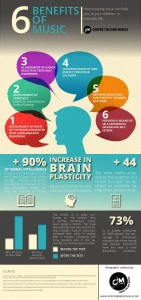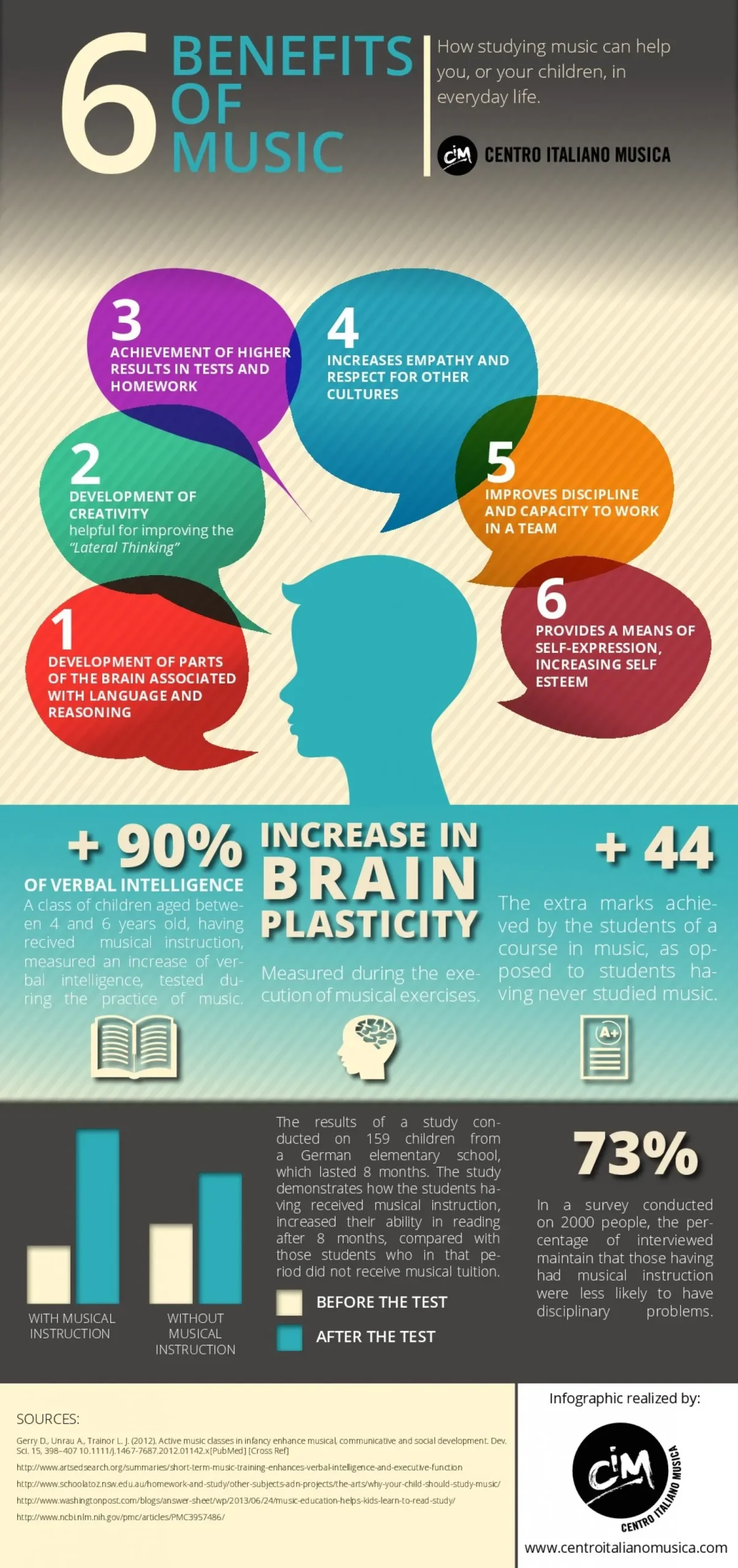
The importance of music in our lives cannot be overstated; it serves as both a universal language and a profound emotional connection. Music transcends geographical boundaries, allowing individuals to share experiences and feelings in a way that words often cannot. From the rhythmic beats that energize our celebrations to the soothing melodies that comfort us during tough times, music plays a pivotal role in shaping our emotional landscape. Moreover, it is integral to music education, enriching the development of cognitive skills while fostering creativity and self-expression. As we explore the multifaceted roles of music, we will uncover its emotional impact, cultural significance, and its therapeutic qualities that enhance our well-being.
When we delve into the realm of sound and melody, we discover the vital role that auditory art plays in our existence. The cultural relevance of rhythm and melody is evident in everyday life, as it shapes our emotions and enhances our experiences. Various forms of musical expression, including genres and styles, provide a rich tapestry that reflects our diverse backgrounds and shared humanity. Furthermore, the therapeutic applications of sound illustrate how music can be a powerful tool for healing and emotional regulation. As we examine these themes, the significance of music education and its benefits for personal growth will also come to light.
Join Us on X. »@newmp3media
Hot Posts
The Importance of Music in Education
Music education serves as a cornerstone for personal and cognitive growth in students. Engaging in musical training can enhance various aspects of brain function, including memory and critical thinking skills. Studies show that children exposed to music education are more likely to excel academically due to the discipline and focus developed through learning instruments or vocal techniques. Furthermore, music education fosters creativity, allowing students to engage with their emotions and express themselves artistically, which in turn contributes to their overall personal development.
Beyond cognitive development, music education plays a vital role in nurturing social skills among students. Participating in group music activities such as band or choir promotes teamwork, collaborative spirit, and communication. These experiences teach students how to listen actively and respect diverse opinions, essential skills that prepare them for future challenges in a multicultural society. As schools increasingly recognize the importance of music education, they are more likely to integrate comprehensive music programs into their curricula, ensuring that future generations benefit from the myriad advantages music has to offer.
The Emotional Impact of Music on Wellbeing
The emotional impact of music is profound and multifaceted, affecting listeners on various levels. Music has the innate ability to evoke powerful emotions, often stirring feelings of joy, sadness, nostalgia, or even anger. When individuals listen to their favorite songs, they may find themselves transported back to certain moments in their lives, as music has a unique connection to memory. This phenomenon highlights how personal and communal experiences can be intertwined with melodies and lyrics, creating lasting emotional responses that resonate throughout a lifetime.
Moreover, music serves as a therapeutic tool that can alleviate emotional distress. Music therapy has gained recognition for its effectiveness in helping individuals cope with stress, anxiety, and depression. Trained therapists use music as a medium to facilitate emotional expression and healing, creating a supportive environment that fosters personal reflection and growth. By harnessing the soothing power of music, individuals can find solace and connection in their experiences, ultimately enhancing their emotional wellbeing and resilience.
Cultural Significance of Music in Society
Music holds a significant cultural importance, acting as a reflection of societal values and beliefs. Throughout history, music has been a vehicle for expressing cultural identity and experiences, often highlighting the struggles and triumphs of different communities. For instance, genres such as blues and folk music emerged from the experiences of marginalized groups, providing a powerful voice to those who might otherwise remain unheard. As cultures evolve, music continues to adapt, blending various influences and creating new genres that symbolize the richness of human experience.
Additionally, music plays a crucial role in fostering cultural dialogue and understanding. Collaborations between artists from diverse backgrounds enrich the music landscape, allowing for a cross-cultural exchange that promotes empathy and awareness. When musicians share their stories through their art, they invite listeners to engage with different perspectives and traditions. This cultural representation in music not only celebrates diversity but also encourages a sense of unity among listeners, reminding us of our shared humanity and the importance of inclusivity.
Music as a Tool for Social Movements
Throughout history, music has been a powerful tool for social movements, often serving as anthems for change. Songs that resonate with the struggles of a community can galvanize individuals to come together and advocate for their rights. Whether it’s the civil rights movement or LGBTQ+ advocacy, music has the ability to inspire action and provide a sense of hope. The emotional potency of a well-crafted song can mobilize people, encouraging them to join hands in solidarity and strive for a common cause, thus showcasing the transformative power of music in driving social change.
Furthermore, music creates a platform for marginalized voices to be heard. Artists leverage their influence to raise awareness about social issues, using their lyrics to address injustices and promote acceptance. By amplifying these messages through music, they cultivate a sense of community among listeners, fostering dialogue and encouraging activism. The cultural significance of music in social movements highlights its role as both an art form and a catalyst for change, emphasizing the need for continued support and recognition of music’s impact on society.
The Healing Power of Music Therapy
Music therapy has emerged as a vital practice that harnesses the healing potential of music to support emotional and physical health. By utilizing music interventions, therapists can help individuals process their emotions, cope with trauma, and improve their overall wellbeing. This therapeutic approach has shown promising results in various settings, including hospitals, rehabilitation centers, and mental health facilities, where music acts as a non-invasive tool for healing. Patients often report feeling more relaxed and connected to their feelings when engaged in music therapy, illustrating its profound impact on mental health.
Additionally, music therapy can facilitate communication for individuals who struggle with verbal expression, such as those with autism or cognitive impairments. Through music, therapists can create a safe space for individuals to express themselves freely, enhancing their emotional intelligence and interpersonal skills. The therapeutic effects of music not only promote individual healing but also foster a sense of community and understanding among participants, reinforcing the idea that music serves as a vital component of holistic health care.
Music and Its Role in Personal Identity
Music significantly contributes to the formation of personal identity, allowing individuals to express their unique experiences, beliefs, and emotions. From a young age, people often gravitate towards specific genres or artists that resonate with their feelings or experiences, creating a soundtrack to their lives. These musical preferences can influence social interactions and shape cultural affiliations, as individuals bond over shared tastes in music, forming connections that define their identities. This relationship between music and identity highlights the importance of music in fostering personal expression and cultural belonging.
Moreover, music can serve as a means of navigating complex emotions and experiences. For many, listening to or creating music provides an outlet for expressing feelings that may be difficult to articulate. This personal connection to music allows individuals to explore their inner worlds and find solace in shared experiences. As such, music becomes not just a form of entertainment but a crucial tool for self-discovery and emotional growth, underscoring its significance in shaping who we are as individuals and as part of a larger community.
Music’s Influence on Community Building
Music plays a pivotal role in building and strengthening communities, serving as a unifying force that transcends cultural and social barriers. Community events centered around music, such as concerts, festivals, and local performances, create opportunities for individuals to come together, share experiences, and celebrate their collective identity. These gatherings foster a sense of belonging and encourage social interaction, reinforcing the idea that music is not just a personal experience but a communal one that connects people across diverse backgrounds.
In addition to community bonding, music can also serve as a form of activism, bringing attention to social issues and inspiring collective action. Artists often use their platforms to advocate for change, rallying communities around causes that matter to them. Through music, individuals can find common ground and work together towards shared goals, demonstrating the potential of music to inspire unity and collaboration. As communities continue to navigate the challenges of the modern world, the role of music as a tool for connection and empowerment remains more important than ever.
The Economic Impact of Music Industries
The music industry contributes significantly to the global economy, generating billions in revenue and providing countless jobs. From live performances to music production and distribution, the economic impact of music is far-reaching. Music festivals and concerts attract tourists and boost local economies, while artists and musicians fuel a diverse range of businesses, including record labels and streaming services. This economic significance underscores the need for continued investment in music-related initiatives and policies that support artists and cultural institutions.
Moreover, the rise of digital platforms has transformed the music landscape, providing new opportunities for artists to reach audiences worldwide. Streaming services have democratized music access, allowing independent musicians to showcase their work without the backing of major labels. This shift not only enhances diversity within the music scene but also encourages innovation and creativity, as artists explore new genres and styles. The economic vitality of the music industry is intricately linked to its cultural significance, emphasizing the importance of music as a vital contributor to social and economic well-being.
The Role of Music in Childhood Development
Music plays a crucial role in childhood development, influencing various aspects of growth and learning. Engaging with music from an early age can enhance cognitive abilities, language development, and social skills. Children exposed to music education often demonstrate greater creativity and problem-solving skills, as musical activities stimulate brain development and encourage critical thinking. Furthermore, music provides a platform for emotional expression, allowing children to navigate their feelings and develop emotional intelligence.
In addition to cognitive benefits, music fosters social interaction and collaboration among children. Group music activities, such as singing in a choir or playing in a band, encourage teamwork and communication. These experiences help children build relationships with peers and develop essential social skills that will serve them throughout their lives. As communities recognize the importance of music in childhood development, integrating music education into early learning programs becomes increasingly crucial for fostering well-rounded individuals.
Frequently Asked Questions
What is the importance of music in education?
The importance of music in education lies in its ability to enhance cognitive development, emotional expression, and social skills among students. Music education fosters creativity and discipline, supports memory and language skills, and cultivates emotional intelligence, making it a vital component of a well-rounded education.
| Aspect | Key Points |
|---|---|
| Music Education | Enhances cognitive development, emotional expression, and social skills; fosters creativity and cultural appreciation. |
| Emotional Impact | Evokes memories, provides comfort, and unites people; used in therapy for stress relief and emotional processing. |
| Cultural Representation | Acts as a voice for social movements, bridges cultural gaps, and promotes diversity and inclusion. |
Summary
The importance of music is a fundamental aspect of human experience that transcends mere entertainment. It influences education by enhancing cognitive abilities and fostering emotional intelligence in students. Music also plays an essential role in our emotional lives, offering comfort and connection through shared experiences. Furthermore, it serves as a powerful vehicle for cultural representation, advocating for social change and inclusivity. As we recognize the multifaceted role of music, we see it as not just a form of art, but a vital component of our identity and well-being.
The importance of music in our lives cannot be overstated, as it serves as a powerful medium for expression and connection. From the early days of childhood through adulthood, music shapes our experiences, influences our emotions, and enriches our cultural landscape. Studies show that music education enhances cognitive abilities while fostering emotional resilience, highlighting its role in personal development. Moreover, the emotional impact of music can be profound, providing solace during difficult times and evoking powerful memories. As we explore the multifaceted significance of music, it becomes clear that its relevance extends far beyond mere entertainment, weaving itself into the very fabric of our society.
Music, often described as the universal language, plays a pivotal role in shaping human experiences across cultures and generations. Its influence permeates various aspects of life, from the educational realm where music education fosters creativity and discipline, to its therapeutic use in addressing emotional health. The cultural significance of music is equally noteworthy, as it reflects societal values and unites diverse communities. Additionally, the emotional resonance of melodies and lyrics can help individuals navigate their feelings and forge connections with others. In examining these dimensions, we uncover the myriad ways in which music enriches our lives and fosters a sense of belonging.









Leave a Reply